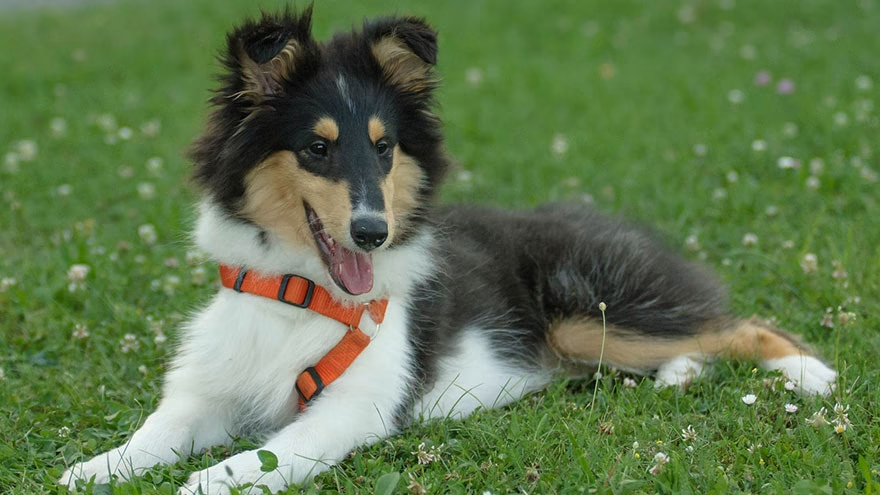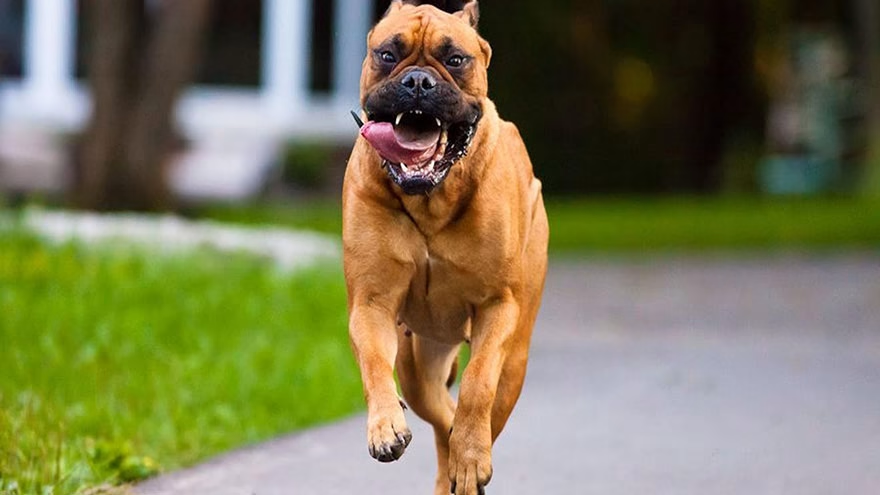In addition, law enforcement agencies, rescue teams and other organizations have found the breed’s intelligence, stamina, and keen sense of smell very valuable in emergency, situations. To help you understand this special breed, we have gathered ten common questions about the German Shepherd, with answers for each.

1. What İs The History Of The German Shepherd?
This breed is the result of efforts by a small group of German dog enthusiasts who formed a society in 1891 to promote native German dog breeds. A man named Captain Max von Stephanitz entered the picture in 1894.Seeing a particular breed of dog in 1899, von Stephanitz found it to have amazing strength and herding skills so admired. From this excellent animal came the line from which German Shepherds emerged and by 1919, the English Kennel Club gave the breed a separate register.
2. How Big İs A German Shepherd?
A healthy German Shepherd should be muscular but appear lean and sturdy, with pointed, upright ears and hard soles on its feet. Keep in mind that three varieties of German Shepherd exist to include the rough-coated, long rough-coated, and the longhaired types.Males typically stand 24 to 26 inches while females are about one or two inches shorter. As far as weight, a mature German Shepherd could be anywhere from 77 to 85 pounds.
3. Would A German Shepherd Be Good İn A Home With Children?
The German Shepherd can be an excellent family dog, doing quite well with children. However, it is important to purchase your puppy from a reputable breeder, one that has taken the time to make sure the young dog is comfortable around humans, as well as other dogs.Keep in mind the size and strength of the German Shepherd, which could be a problem for small children. It is also necessary to give the dog plenty of outside exercise to help burn off energy.
4. How Do I Choose A Breeder?
You should do some research on breeders in your area and visit at least three reputable, top-quality breeders. If necessary, ask the American Kennel Club or your personal veterinarian for recommendations" class="auto-link" target="_blank" rel="noopener">breeder recommendations.Then, take your time when visiting each, asking plenty of questions so that you do not leave with any doubts in your mind. You should always ask to see the parents of the puppy you are considering and look closely at the conditions the puppy lives in.
5. Does A German Shepherd Make A Good İnside Dog?
This breed is happiest with outside activity, especially if the dog is challenged and given something to keep it interested. A German Shepherd would do fine as a housedog but on a limited basis.In this case, you want to plan spending regular time outside to allow your pet to run and get plenty of exercise. As with most dogs, German Shepherds should not be left alone for long periods and never tie your dog up leaving it outside alone.
6. Does This Breed Work Well For Family Members With Allergies?
The German Shepherd may not be the best breed in a home with allergies. Remember that this dog sheds small amounts of hair regularly but is not considered a heavy shedder. Many experienced breeders and owners consider this a very “natural” breed in that its coat does not take a great deal of grooming.In addition, a German Shepherd needs to be outside often, so this can introduce irritants to the home. It is best to ask your breeder and veterinarian specific questions about this situation before you choose a German Shepherd puppy or any puppy for that matter.
7. Is This Breed Of Dog Easy To Housebreak?
This intelligent breed is considered highly trainable. Housebreaking is not generally a major problem with a well-socialized, healthy German Shepherd. We might recommend crate training, which can teach the dog restraint and deliver it with a safe haven.The key to successful housebreaking is prevention. Therefore, plan to take the dog outside early in the morning and again, before you go to bed at night. Praise your pet for good behavior, because positive reinforcement works best with this breed.
8. Do German Shepherds Get Along With Other Dogs?
First of all, the German Shepherd makes a very loyal pet but one that is often wary of strangers. However, with good socialization as a puppy, this breed should do quite well with people and with other pets.Just keep in mind that you want to use a firm hand when introducing a German Shepherd to an existing family dog, especially if the Shepherd is older.
9. How Often Should I Feed My German Shepherd?
German Shepherds seem to do well with what is called “free feeding”, meaning food is left out throughout the day. However, you should keep a close watch on your dog as it grows, making sure that it does not gulp too much food at a time.The reason is that some larger, deep-chested dogs tend to suffer from bloat, a malady that is connected with a twisting of the abdomen. This health risk is the result of too much food and water being consumed at once.
10. How Long Will My German Shepherd Live?
A healthy, well-fed German Shepherd should live between 10 and 13 years in the right situation although middle age is about 5 to 7 years.Nutrition needs can change over the course of time, so be prepared to consult with your veterinarian about changes to help extend the life of your pet.
Read More About German Shepherd
- German Shepherd Breed Information
- German Shepherd Training Guide
- German Shepherd Health Guide
- Owning a German : Breeder Recommendations
Save for later
Found this helpful?
Pin this article to your Pinterest board and come back to it whenever you need a reminder.
Save to Pinterest


